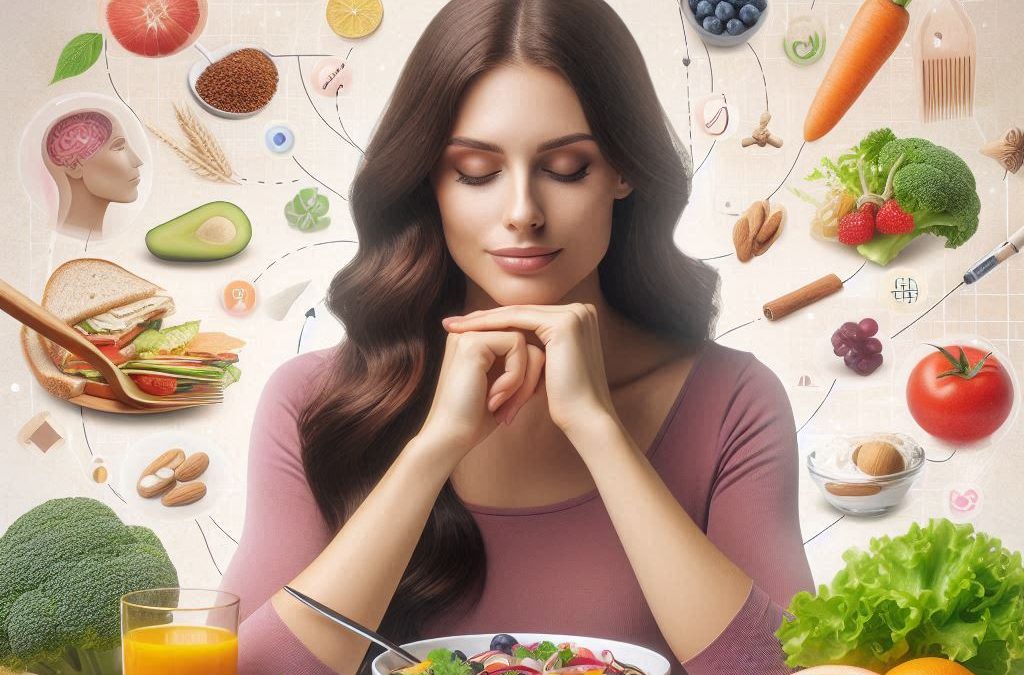Introduction
We’ve all heard the saying, “You are what you eat,” but when it comes to skin and hair health, this adage couldn’t be truer! Your daily diet does more than just keep your stomach full—it plays a crucial role in how your skin looks and how your hair feels. If you’ve ever wondered why your once radiant complexion now seems dull or why your locks don’t shine like they used to, your diet might be the culprit. In this comprehensive guide, we’ll dive deep into how diet and nutrition impact your skin and hair health, offering you practical tips and insights to help you glow from the inside out!
How Diet and Nutrition Influence Skin Health
The Skin’s Diet Dilemma
Skin is our body’s largest organ, and it’s constantly battling external aggressors like pollution and UV rays. But did you know it also reacts strongly to what you put on your plate? Here’s a rundown of how different nutrients play a part in maintaining healthy, vibrant skin:
- Vitamins: These little powerhouses are essential. Vitamin C, for example, helps with collagen production, keeping your skin firm and youthful. Vitamin E, on the other hand, is a fantastic antioxidant that protects your skin from damage.
- Minerals: Zinc is a crucial player, helping to heal wounds and fight off inflammation. Selenium also provides antioxidant benefits, which can prevent skin aging.
- Fats: Healthy fats, like those found in avocados and nuts, help keep your skin hydrated and supple. Omega-3 fatty acids, in particular, reduce inflammation and support skin elasticity.
The Impact of Hydration
Ever notice how a well-hydrated person tends to have that dewy glow? That’s not just a coincidence! Drinking enough water keeps your skin cells plump and vibrant. It helps flush out toxins and maintain your skin’s natural moisture balance.
Dietary Culprits to Watch Out For
- Sugar: High sugar intake can lead to inflammation and glycation, which speeds up the aging process and can cause breakouts.
- Dairy: Some studies suggest that dairy products might exacerbate acne for some people, though the evidence is mixed.
- Processed Foods: Foods high in trans fats and artificial additives can contribute to inflammation and dullness.
Tips for a Skin-Friendly Diet
- Load up on fruits and veggies: They’re rich in vitamins, minerals, and antioxidants.
- Incorporate healthy fats: Think avocados, nuts, and fatty fish.
- Stay hydrated: Aim for at least 8 glasses of water a day.
- Limit processed foods and sugars: Opt for whole, unprocessed options instead.
How Diet and Nutrition Affect Hair Health
The Role of Nutrients in Hair Growth
Just like your skin, your hair thrives on a balanced diet. Here’s a closer look at the nutrients that support healthy, luscious hair:
- Proteins: Hair is primarily made of a protein called keratin. A protein-rich diet helps your body produce keratin, which supports hair growth and strength. Think lean meats, eggs, and legumes!
- Iron: This mineral helps carry oxygen to your hair follicles, promoting growth. Good sources include spinach, red meat, and beans.
- Biotin: Often touted as a hair growth booster, biotin (Vitamin B7) supports the production of keratin and improves hair strength.
- Vitamin D: This vitamin can help create new hair follicles and is essential for hair growth. Sun exposure and fortified foods can help you get enough Vitamin D.
Hair-Specific Diet Hacks
- Eat a balanced diet: Combine proteins, healthy fats, and vitamins for overall hair health.
- Include iron-rich foods: Add spinach, red meat, and lentils to your meals.
- Snack on nuts and seeds: They provide essential fatty acids and minerals that support hair health.
Foods That Might Harm Hair Health
- High-sugar foods: Just like with skin health, excess sugar can lead to inflammation, which can affect hair growth.
- Excessive caffeine: Too much caffeine might lead to dehydration, which can negatively impact your hair’s moisture levels.
Conclusion
So there you have it—the inside scoop on how diet and nutrition impact your skin and hair health! It’s clear that what you eat plays a pivotal role in how your skin looks and how your hair feels. By focusing on a balanced diet rich in vitamins, minerals, and healthy fats, you’re not just nourishing your body but also giving your skin and hair the TLC they deserve. Remember, it’s not about drastic changes but about making small, consistent improvements. Your body—and your reflection—will thank you for it!
Take control of your health today, and start making those diet changes. Here’s to radiant skin and luscious locks—cheers to your journey toward glowing from the inside out!
FAQs About Diet and Nutrition for Skin and Hair Health
1:How long does it take to see changes in skin and hair health after changing my diet?
It varies from person to person, but generally, you might start to see improvements in your skin within a few weeks. Hair growth can take a bit longer, as hair grows about half an inch per month on average.
2: Can a poor diet cause acne?
Yes, certain dietary habits can trigger acne. High sugar intake and dairy products are common culprits, but everyone’s skin is different. Keeping a food diary might help you identify any patterns.
3: Are supplements necessary for skin and hair health?
Ideally, you should get most of your nutrients from a balanced diet. However, if you’re unable to meet your nutritional needs through food alone, supplements might be helpful. Always consult with a healthcare provider before starting any new supplements.
4: What’s the best way to stay hydrated?
Drinking water is key, but you can also increase your hydration with herbal teas, and water-rich fruits like cucumbers and oranges. Just be mindful of sugary drinks, as they can have the opposite effect.

